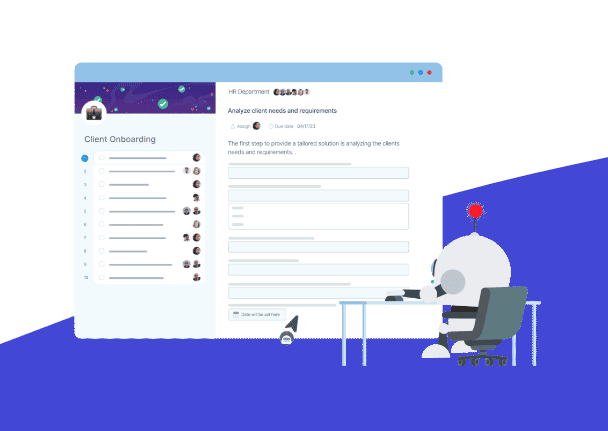Unlock Your Business Potential: The Ultimate Guide to Business Checking Accounts
Running a business? Then you know that separating your personal and business finances is crucial. But it’s more than just good practice – it’s about unlocking potential and setting yourself up for success. A dedicated business checking account is the cornerstone of smart financial management.
Think of it like this: a business checking account isn’t just a place to stash your cash. It’s a powerful tool that streamlines transactions, builds credibility, and gives you a clear picture of your financial health.
Many banks offer valuable perks and features specifically for businesses, such as online bill pay, invoicing tools, and even integration with accounting software.
Ready to take control of your business finances? Let’s dive in!
Understanding Business Checking Accounts: Your Financial Foundation
So, you’re ready to take your business to the next level. You’ve got the drive, the vision, and the passion. But are your finances working as hard as you are? A solid financial foundation is essential for any successful entrepreneur, and it all starts with the right business checking account.
What is a Business Checking Account?
Simply put, a business checking account is a type of personal bank account specifically designed for businesses. It’s where you’ll manage your company’s income and expenses, pay vendors, and receive client payments. Think of it as the central hub for all your financial activity.
Now, you may wonder how this differs from my personal checking account? Well, there are some key distinctions. First and foremost, a business checking account helps you maintain a clear separation between your personal and business finances.
This is crucial not only for organizational purposes but also for legal and tax reasons. Mixing personal and business funds can lead to complications come tax season and may even jeopardize your business’s legal standing.
Why Every Entrepreneur Needs a Business Checking Account
Beyond managing your money, a business checking account offers many benefits that can significantly impact your success.
1. Projecting a Professional Image
First impressions matter, and how you handle your finances speaks volumes about your business. You present a professional and credible image when you pay vendors or receive payments from clients using a dedicated business account. It shows you’re serious about your business and instills confidence in those you work with.
2. Simplifying Your Finances
Keeping your business and personal finances separate can be a lifesaver come tax time. A business checking account makes it easy to track income and expenses, simplifying accounting and ensuring accurate record-keeping. No more sifting through personal transactions to identify business-related costs – it’s all right in your dedicated account.
3. Protecting What Matters
In the unfortunate event of a lawsuit or liability claim against your business, a separate business checking account can help protect your assets. This separation creates a legal distinction between your personal and business finances, shielding your property from business-related risks.
Key Features to Look for in a Business Checking Account
Not all business checking accounts are created equal. Like choosing the right tools for your trade, selecting an account with the right features can make a difference in managing your business finances.
Essential Services for Managing Cash Flow
In today’s fast-paced business environment, you need a checking account that meets your needs. Here are some essential features to prioritize:
- Online Bill Pay: Say goodbye to writing checks and mailing payments. Online bill pay allows you to schedule and pay vendors electronically, saving time and ensuring timely payments.
- Mobile Check Deposit: Deposit checks anytime, anywhere, with the snap of a picture. This convenient feature eliminates trips to the bank and speeds up cash flow.
- ACH and Wire Transfers: Need to send or receive funds quickly and securely? Look for an account that offers ACH and wire transfer capabilities for seamless domestic and international transactions.
- Accounting Software Integration: Streamline your financial management by choosing an account that integrates with your accounting software. This allows you to import transactions automatically and reconcile your books easily.
By prioritizing these features, you’ll gain greater control over your cash flow, simplify your financial operations, and free up more time to focus on what you do best – growing your business.
Fee Structures and How They Impact Your Bottom Line
While some banks offer accessible small business checking accounts, many come with fees that can affect your profits.
Many banks charge a monthly fee to maintain your account. However, you can often waive this fee by meeting specific requirements, such as maintaining a minimum balance or making a particular number of monthly transactions.
Some accounts limit the number of free transactions you can make monthly. Exceeding this limit may result in overage charges, so it’s essential to choose an account that aligns with your transaction volume.
Using ATMs outside of your bank’s network can lead to hefty fees. Look for an account with a broad ATM network or reimbursement options for out-of-network ATM fees.
Overdraft protection can help avoid costly fees if you accidentally overdraw your account. However, it’s essential to understand the terms and fees associated with this service.
By carefully considering these fee structures, you can choose a business checking account that fits your budget and helps you maximize your financial resources.
Interest-Bearing Business Checking Accounts: Are They Worth It?
You work hard for your money, so why not make it work for you? Interest-bearing business checking accounts offer the opportunity to earn interest on your deposits, essentially turning your operating capital into an income-generating asset.
The Appeal of Earning Interest
The primary advantage of an interest-bearing account is, of course, the potential to earn interest. While the interest rates on these accounts are typically lower than those offered on business savings accounts or money market accounts, they can still provide a modest return on your funds.
Weighing the Trade-offs
However, there are some trade-offs to consider. Interest-bearing checking accounts often come with higher minimum balance requirements and may have limitations on the number of transactions allowed. It’s essential to weigh these factors against the potential interest earnings to determine if this type of account suits you.
Finding the Best Rates
Interest rates on business accounts vary depending on the financial institution and the prevailing market conditions. It’s worth comparing rates from different banks to find the most competitive option. Keep in mind that some banks may offer promotional rates for new accounts or for meeting specific criteria.
Meeting the Requirements
To earn interest on your deposits, you’ll typically need to maintain a minimum balance in your account. This minimum balance can vary significantly from bank to bank, so check the requirements before opening an account.
Ultimately, whether or not to choose an interest-bearing business checking account depends on your individual needs and financial goals. If you consistently maintain a high balance in your account and meet the minimum requirements, an interest-bearing or business savings account can be a valuable tool for maximizing your returns.
How to Choose the Right Business Checking Account for Your Needs
With so many business checking accounts available, finding the perfect fit for your business can feel like searching for a needle in a haystack. But don’t worry; it doesn’t have to be an overwhelming process.
By assessing your specific needs and priorities, you can narrow your options and choose an account supporting your financial goals.
Assessing Your Business’s Banking Requirements
Before you start comparing accounts, it’s crucial to understand your own banking habits and requirements. This will help you identify the most important features and avoid unnecessary fees or limitations.
Do you make a few large transactions monthly or have a high volume of smaller transactions? Some accounts limit the number of free transactions, so choosing an account that aligns with your typical transaction volume is important.
If your business handles significant cash, you’ll need an account accommodating frequent and substantial cash deposits. Consider the average amount of cash you deposit monthly and any potential limits imposed by different banks.
Where will you see your business next year? In the next five years? Choose an account that can scale with your company and offers the flexibility to add features or services as your needs evolve.
By carefully considering these factors, you can choose an enhanced checking account to set you up for financial success.
Opening and Managing Your Business Checking Account
You’ve researched, compared the options, and finally chosen the perfect business checking account for your needs. Now it’s time to take the next step and open your account. While the process is generally straightforward, there are a few key things you’ll need to have to get started.
Required Documentation for Account Opening
Banks typically require specific documentation to verify your business’s identity and legitimacy. Gathering these documents in advance will streamline the account opening process.
Business Formation Documents:
Be prepared to provide documentation that verifies your business’s legal structure. This may include:
- Articles of Incorporation (for corporations)
- Certificate of Organization (for LLCs)
- Partnership Agreement (for partnerships)
- Sole Proprietorship Declaration (for sole proprietorships)
EIN and Tax ID Information:
Your Employer Identification Number (EIN) or Taxpayer Identification Number (TIN) is used to identify your business for tax purposes. Have this information readily available when opening your account.
Personal Identification for Business Owners:
Banks will also require personal identification for all business owners and authorized signatories on the account. This typically includes:
- Driver’s license or state-issued ID
- Social Security number
- Proof of address
By having these documents prepared in advance, you can ensure a smooth and efficient account opening process.
Common Pitfalls to Avoid with Business Checking Accounts
While business checking accounts offer numerous benefits, it’s important to be aware of potential pitfalls that can lead to unexpected costs and financial headaches. By understanding these common mistakes, you can confidently navigate the business banking world and avoid unnecessary expenses.
Overlooking Fine Print and Hidden Fees
One of the most common mistakes entrepreneurs make is not thoroughly reviewing the fee schedule and terms and conditions associated with their business checking account.
Don’t just focus on the monthly service fee. Pay close attention to potential charges for transactions, ATM withdrawals, free overdraft protection, and other services. Some banks may have hidden fees that can quickly add up if you’re not careful.
Many banks offer enticing introductory offers to attract new customers. These may include waived monthly fees or bonus rewards. However, it’s crucial to understand when these offers expire and the regular fees.
Some accounts require a minimum balance to avoid monthly fees or penalties. Ensure you understand these requirements and consistently meet them to avoid unexpected charges.
By carefully reviewing the fine print and understanding all potential fees, you can choose a business checking account that aligns with your budget and financial goals.
Neglecting to Separate Personal and Business Finances
One of the most crucial aspects of responsible financial management is maintaining a clear separation between your personal and business finances. Commingling funds can lead to a tangled web of accounting headaches, tax complications, and even legal issues.
Risks of Commingling Funds:
Mixing personal and business expenses in the same account can make tracking your business’s financial performance difficult, complicate tax preparation, and even jeopardize your business’s legal standing. In the event of an audit or lawsuit, commingled funds can blur the lines between your personal and business assets, potentially exposing your finances to liability.
How to Maintain Clear Financial Boundaries:
The solution is simple: open a business checking account exclusively for business-related transactions. This will create a clear separation between your personal and business finances, simplify accounting, ensure accurate tax reporting, and protect your assets.
Tools for Tracking Business Expenses Separately:
Several tools can help you track business expenses separately, even if you haven’t been diligent. These include:
- Business credit cards: To maintain a clear spending record, use a business credit card for all business-related expenses.
- Expense tracking apps: Leverage mobile apps designed to track and categorize business expenses.
- Accounting software: Utilize accounting software to record and reconcile your business transactions, ensuring accurate record-keeping.
By taking these steps to separate your personal and business finances, you can establish a solid foundation for financial health and avoid potential complications down the road.
Failing to Reassess Your Banking Needs as Your Business Grows
Your business is constantly evolving, and your banking solutions should keep pace. Failing to reassess your needs can lead to missed opportunities and unnecessary expenses.
Signs It’s Time for a Change:
- Hitting transaction limits: Exceeding transaction limits or incurring high fees? Time for an upgrade.
- Increased cash handling: Need higher deposit limits or cash management services? Explore your options.
- Going global: Expanding internationally? You’ll need an account with international banking capabilities.
- Need more features: Require sophisticated tools or personalized support? Look for a bank that can deliver.
- Poor customer service: Not getting the support you need? Consider a bank that prioritizes customer satisfaction.
Transitioning Smoothly:
- Open your new account first: Maintain access to banking services during the transition.
- Update payment information: Notify everyone of your new account details.
- Transfer recurring payments: Update automatic payments and direct deposit information.
- Reconcile your old account: Ensure everything is accurate before closing it.
Negotiate with Your Current Bank:
Before switching, see if your current bank offers better terms or can upgrade your account. They might surprise you!
Final Thoughts on Business Checking Account
You’re now equipped to choose the perfect business checking account! Remember, it’s more than just storing money; it’s a tool for growth. As financial experts, we’ve seen the impact the right account can have.
Ready to take action?
- Assess your needs.
- Compare the top accounts.
- Choose the best fit.
- Open your new account and thrive!
It’s an investment in your business’s future. Need more help? Reach out to a financial advisor or the banks. Here’s to your financial success!







